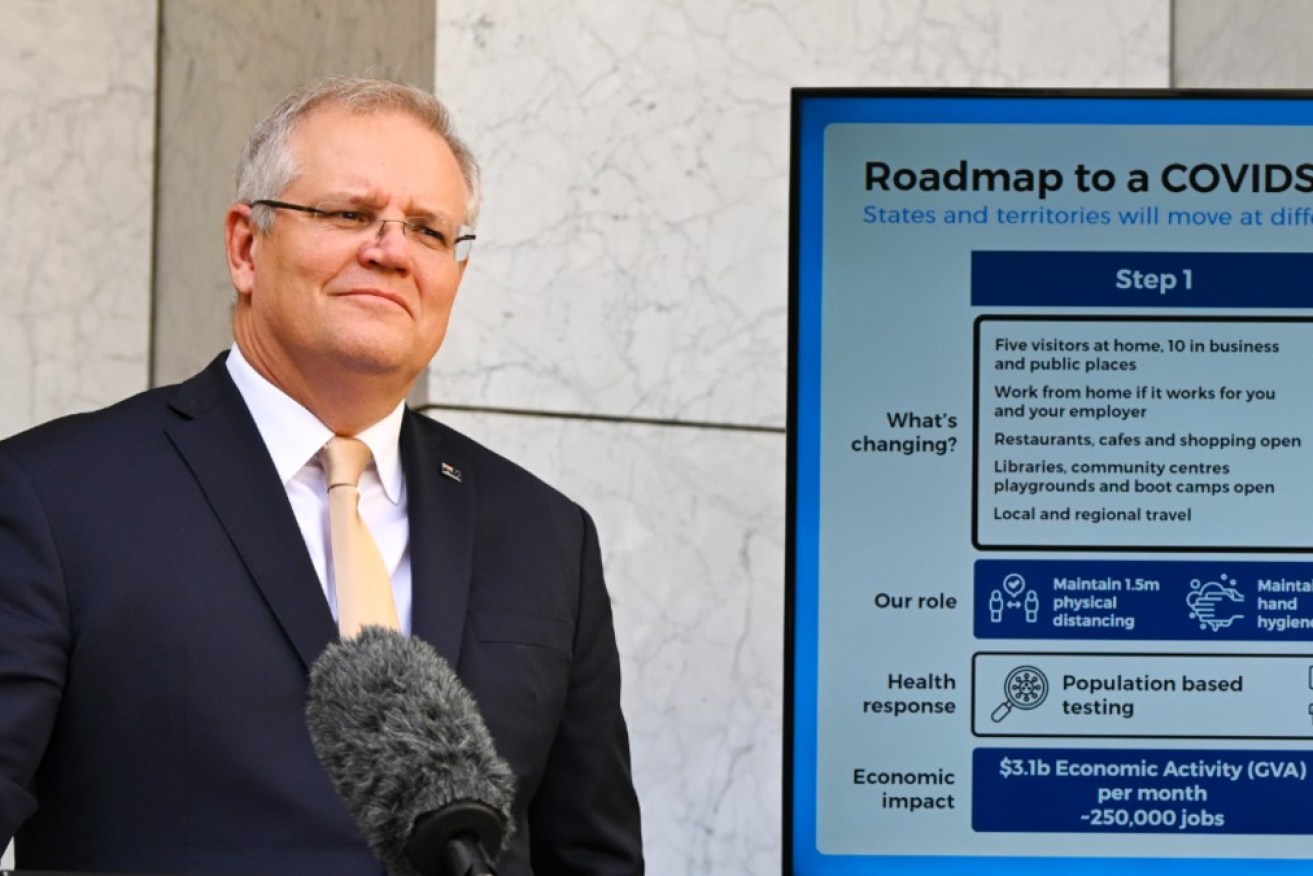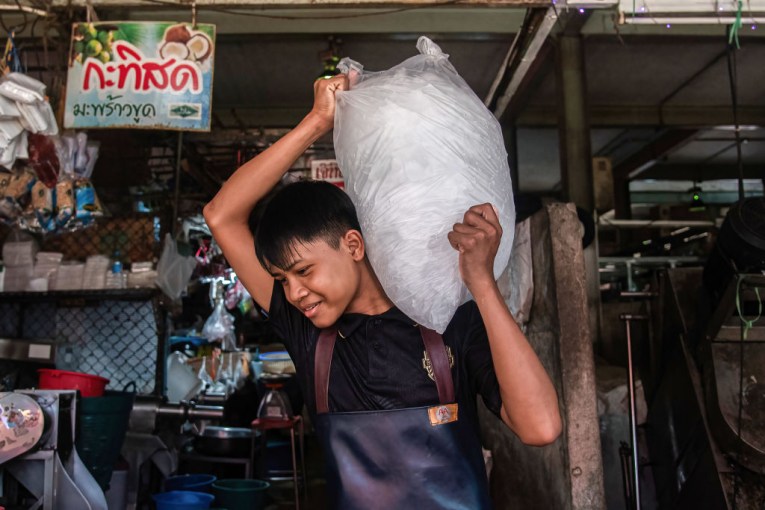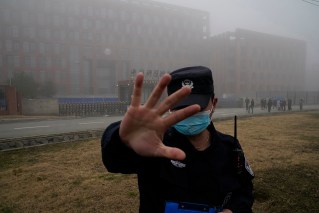Prime Minister faces backlash from pubs, restaurants over roadmap to recovery


Prime Minister Scott Morrison hopes Australia will have reached stage three of the roadmap to recovery by July. Photo: AAP
Pubs and restaurants claim they face financial ruin amid a backlash over the federal government’s three-staged roadmap to recovery.
The Prime Minister has plotted the reopening of restaurants, cafes and pubs during stage one of restrictions easing, but with a 10-person limit.
Gathering limits will not be increased to 100 people until phase three, expected by July.
But both industries have warned many venues could not afford to open their doors for only ten customers.
The Australian Hotels Association says the schedule for easing restrictions could force some hotels and pubs to shut permanently.
“Hotels have been left blindsided,” chief executive Stephen Ferguson said.
“They basically will not be able to reopen their businesses until stage three of the recovery process.”
Mr Ferguson said the plan failed to account for venues with large floor space and most would be forced to remain closed.
“We are told only 10 people can sit and have a meal in a pub restaurant area even if that area could safely socially distance 50 or 100,’ he said
“Why can only 10 people be allowed in a dining area of a huge venue that could safely socially distance 120?”
People are cramming into supermarkets and work side-by-side on building sites, he said.
“Where is the consistency?”

Some states will be able to enjoy a beer at the pub in coming days and weeks but the industry warns many venues won’t open. Photo: AAP
Meanwhile figures show almost one-quarter of Australia’s struggling cafes and restaurants are not expected to reopen after coronavirus.
The restaurant industry, which was valued at $37 billion, dropped 13.3 per cent from March 2019 to March 2020, a loss of about $5 billion.
Cafes are also suffering, with a survey for the Cafe Owners and Baristas Association of Australia finding 24 per cent had already closed and 20 per cent were unsure whether they would reopen.
“I cried when I saw that impact; I know the hurt in the numbers,” COBAA president Davis Parnham, told The New Daily.
“Based on the report I don’t think we have long at all.
“Cafe owners who four weeks ago thought they would get through this probably won’t.”
“It will be a whole reset of the industry. It might take two to three years of normal trade to pay back (what people have borrowed to survive) but they don’t realise that at the end of this they might not have normal trade.
“They can’t see what is going to hit them.”
From Monday, South Australians will be able to eat out and have a beer while Queenslanders will get the chance from May 16, the first states to announce the move after Mr Morrison’s address.
However popular restaurants in Brisbane and the Gold Coast have warned they will not be able to afford to open for only ten diners.
Ruby Princess inquiry
The NSW Port Authority reversed its decision to cancel the Ruby Princess’ Sydney berthing after the cruise line described the coronavirus risk as minimal, an inquiry has been told.
The authority, which is responsible for providing a pilot to bring vessels into port, cancelled the booking late on March 18 after the duty harbourmaster received information from NSW Ambulance about two ill passengers needing transportation from the ship.

The Ruby Princess cruise ship as it departed Port Kembla following outcry over infections and deaths. Photo: AAP
But the authority’s acting chief operating officer, Emma Fensom, said she reversed the cancellation in the early hours of March 19 after a conversation with Carnival Australia’s senior director of port operations Paul Mifsud.
Ms Fensom told the inquiry Mr Mifsud told her “NSW Health had not said the ambulances were for COVID-19” and that there was no coronavirus on board.
The Ruby Princess is thought to have been responsible for as much as 10 per cent of all coronavirus cases identified in Australia so far.
China inquiry
A top Beijing diplomat has hinted that a narrow and “scientific” investigation might be acceptable, as Australia pushes for a full inquiry into the origins of the pandemic.
Australia has called on nations to support an international investigation into the origins and spread of the virus.
China’s ambassador to Germany, Mr Wu Ken, told Der Spiegel magazine on Friday that any such inquiry would need to focus on the “the exchange of research among scientists.”
“But we reject putting China in the dock without evidence, assuming its guilt and then trying to search for evidence through a so-called international investigation,” he said.
China has dismissed as groundless US and Australian questioning of how it handled the pandemic, insisting it had always been open and transparent, despite growing scepticism about the accuracy of its official death toll.
France and Britain have said their focus is fighting the virus, not apportioning blame.
-with AAP








